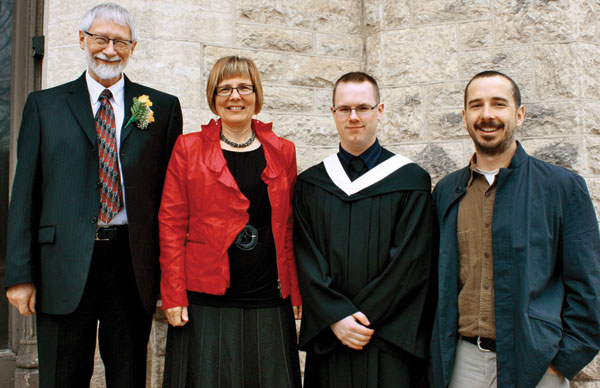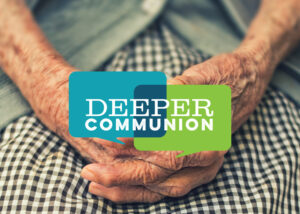Three years ago, in the middle of reading Roméo Dallaire’s traumatic first-hand account of the Rwanda genocide, David Barker decided his future would be in disaster response.
“It was the first time I read something about the actual suffering going on in the world,” says Barker, recalling his profound emotional response to Dallaire’s book, Shake Hands with the Devil.
This spring, Barker became the first student to graduate from the fledgling disaster recovery studies program at Canadian Mennonite University (CMU). Barker received his diploma on April 17 with a major in peace and conflict studies and two minors, one in international development and the other in disaster recovery.
If CMU had offered a major in disaster recovery, Barker says he would have taken it. But when he enrolled, CMU was just getting the 18-credit-hour program off the ground.
CMU developed the program through a partnership with Mennonite Disaster Service (MDS). Its emphasis is on the longer-term phases of individual, family and community rebuilding following disasters. A key part of the program is a series of two terms of fieldwork, eight to 10 weeks each, to fulfill CMU’s practicum requirement.
“The first term is spent serving with MDS. The second may be either with MDS or with another agency that does disaster recovery work in North America or internationally,” says instructor Lois Nickel, program and region director with MDS. “Through these service terms, students … receive hands-on and leadership experience in the rebuilding of disaster-affected, often-vulnerable communities. [Disaster recovery studies] helps students understand the nature of disasters, their aftermath, and the best ways to help people and communities recover physically, psychologically, socially and spiritually.”
In the summer of 2009, Barker completed his first practicum, helping rebuild homes destroyed by California wildfires. “It was a very valuable experience,” he says. “We actually got to interact with the people who had been in the disaster and hear their stories, to talk to them about how they grew spiritually and mentally.”
For his second practicum, Barker worked with the Red Cross in Winnipeg, helping develop a tool to assess the province’s ability to respond to disasters such as floods, heat waves, tornadoes, forest fires or blizzards. In the classroom, Barker studied the theory behind disaster response and the phases of recovery. He feels his classes and hands-on fieldwork over the past three years have helped equip him to begin that work.
Barker’s long-term goal is to get a job working for an organization like the Red Cross, World Vision or the UN. He says he’s willing to live in whatever part of the world he’s needed. “I’d find that interesting and rewarding,” he says.
But to get that kind of job, Barker needs more volunteer experience on his résumé. That’s why, the day after graduation, he started volunteering with the Manitoba government’s Emergency Measures Organization coordinating responses to the annual spring flood.








Leave a Reply
You must be logged in to post a comment.